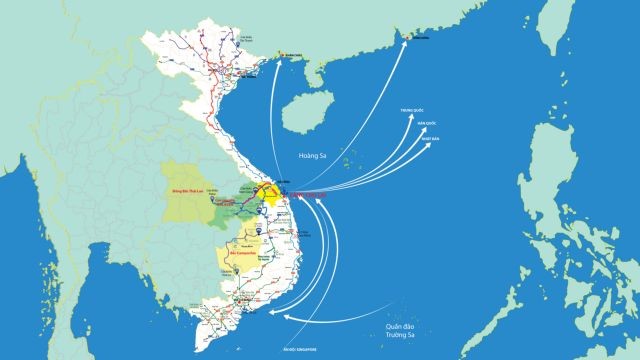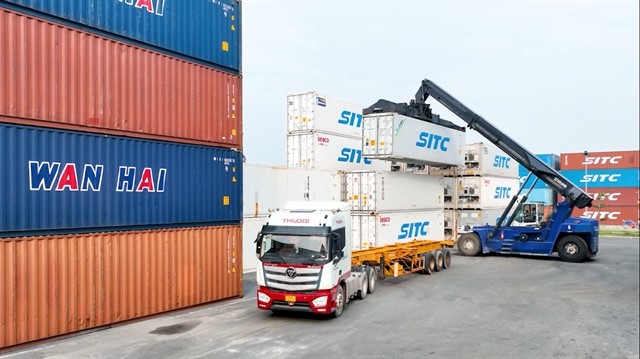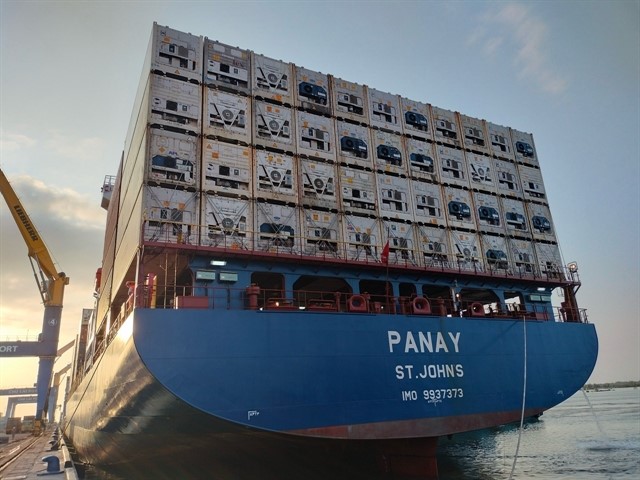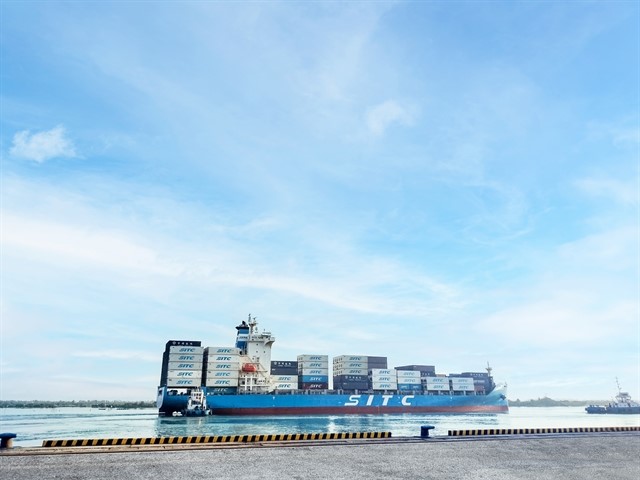By applying various solutions to increase logistics capacity to facilitate export of farm produce, Chu Lai Port is gradually asserting its role as a specialised reefer container port for agricultural export, solving the problem of logistics costs for businesses.

With the goal of turning Chu Lai Port into a logistics hub, and promoting consumption and export of domestic agricultural products, Trường Hải International Logistics Limited Liability Company (THILOGI) has adopted solutions to carry out freight forwarding activities by road, port and sea, and optimise the agricultural export value chain.
Agricultural export potential and logistics capacity
Last year China spent more than US$24.4 billion to import agricultural products, with Việt Nam being the second largest source after Thailand.
Việt Nam and China have signed protocols for official exports of many Vietnamese farm produce such as banana, dragon fruit, mango, watermelon, longan, rambutan, and jackfruit, opening up opportunities for Vietnamese goods to further penetrate this large market. China will remain a promising market for Vietnamese farm produce to increase market share and export value.
However, currently, these products are mainly transported by road and exported through northern border gates such as Tân Thanh, Hữu Nghị and Chi Ma (Lạng Sơn Province) and Móng Cái (Quảng Ninh Province).
It is worth mentioning that warehousing facilities at border gates are poor, there is a lack of cold storage systems, coordination for customs clearance remains inadequate, and congestions is a regular problem during peak harvest season, causing fruits to spoil and increasing logistics costs, thereby reducing the competitiveness of the products.
This is a hurdle for exporters of farm produce, especially of fruits grown in large areas in the south central, central and Central Highlands regions that involve long transportation distances.

Grasping the potential and sharing difficulties with businesses, THILOGI has invested in vehicles and equipment, upgraded infrastructure, and developed a comprehensive logistics service model from transportation, handling export procedures, quarantine, customs declaration, storage, and preservation to support for export of agricultural products (fruits, frozen goods...) by specialised reefer containers through Chu Lai Port, thereby creating favourable conditions for official exports of farm produce to major markets such as China, the US and the EU.
Developing logistics system, contributing to raising Vietnamese farm produce’s value
To improve agricultural product value chains, developing connected and comprehensive logistics services is imperative, while businesses need to change their mindset of only exporting by road to adopt multimodal transportation to optimise costs and time and improve goods quality.

As a company connecting agricultural exports in the central and Central Highlands regions, Laos and Cambodia, THILOGI focuses on investing in and developing a full-package logistics service model, linking freight forwarding activities from road to sea and providing seaport services (ship towing, loading and unloading, counting, warehouse - yard, shipping agency, customs procedures...).
THILOGI owns a fleet of transport vehicles and specialised refrigerated containers (40, 45 feet) with more than 200 tractors, ensuring agricultural products are preserved in compatible temperatures.
At Chu Lai Port, the cold storage system is built to international standards on an area of more than 12,500 sq.m and a capacity of 1,000 cold containers to meet the storage and export needs of customers.
Looking forward, Chu Lai Port will put into operation a 50,000-tonne terminal associated with a modern loading and unloading equipment system, and deploy e-Port software to enable customers to update real-time ship and cargo data status 24/7.

The port meanwhile focuses on building a market database and studying customer needs to link with international shipping lines to cater to customers’ needs, stabilising shipping rates, developing more maritime routes that directly connect Chu Lai Port with major ports around the world, and increasing frequency to four times a week.
Currently service fees at the port are 10 - 30 per cent lower than at other ports in the region, thus supporting agricultural goods exporters with optimal costs.
THILOGI is perfecting the logistics network by road (transit station system, depot) and sea, focusing on Chu Lai Port, helping businesses reduce transportation costs, shorten delivery times and ensuring safety for goods and limiting damage to goods.
With its close connection between land and sea transportation, THILOGI has many advantages to attract domestic and foreign goods (Laos, Cambodia) to Chu Lai Port.
By applying various solutions to increase logistics capacity to facilitate export of farm produce, Chu Lai Port is gradually asserting its role as a specialised reefer container port for agricultural export, solving the problem of logistics costs for businesses, while increasing the competitiveness of Vietnamese agricultural products in the global market. — VNS





